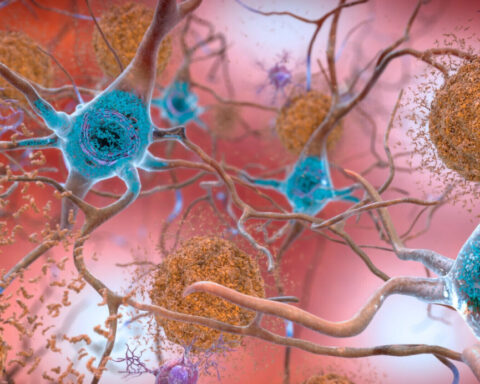When someone holds a door or pays you a compliment, it's a kind gesture - but is it true compassion? On the surface, such acts may seem virtually indistinguishable from deeper empathy. However, psychologists suggest there's an important distinction we often overlook between basic kindness and profound compassionate care.
Kindness is the polite action itself - opening a door, offering pleasantries. Compassion runs deeper, emanating from someone's sincere desire to alleviate your suffering or cultivate your happiness. It requires emotional investment, not just going through motions.
Compassion isn't simply holding the door, it's noticing you're struggling with heavy bags and insisting on carrying them. Kindness compliments your outfit; compassion remembers your favorite color and purposefully lifts your spirits on a hard day. It's being fully present and attuned to your unique needs.
Psychologists note there's a meaningful difference between the detached courtesy of checking a box, and the emotional intelligence driving an act born from empathy. Even if the outward gestures look similar, compassion flows from a reservoir of care and emotional attunement that basic niceties lack.
So while giving a compliment or holding a door are welcomed niceties, if that's where the kindness ends, it stays superficial. True compassion shows up, actively listens without judgment, makes sacrifices, and takes the time to understand your struggles. It's the distinction between simply being "courteous" and cultivating sincere, emotionally intelligent care for another's wellbeing.
Being pleasant often requires basic politeness and proper behavior to make others happy. It tends to be shallow and done out of social expectation or to seek favor. Being considerate, however, arises from sincere sympathy, understanding, and care for the welfare of others. Comprehending another individual’s circumstances typically takes additional time and emotional effort.
“Kindness involves wanting the best for others and taking action to care for their needs with no expectation of anything in return,” said Dr. Ash Nadkarni, an associate psychiatrist at Brigham and Women’s Hospital. “It’s a deeper level of relating that creates meaningful social bonds.”
According to specialists, the mentality behind the behavior distinguishes it. A kind individual may compliment you to uplift your spirits or express gratitude towards a soldier as it appears appropriate. A compassionate individual will assist because they value you and want to alleviate your burden.
“Kindness is focused on others rather than oneself,” stated Dr. Carla Marie Manly, a clinical psychologist and writer. A compassionate individual strives to gain a deeper understanding of the other person’s viewpoint and circumstances in order to provide genuine assistance.
Physiologically, the distinction between acts of kindness and niceness becomes apparent through their varied effects on the body. The practice of compassionate behavior stimulates the release of oxytocin in the brain, a hormone recognized for promoting social connections and reducing feelings of fear and anxiety. Furthermore, it reduces the levels of stress-related chemicals, such as cortisol. As explained by Nadkarni, this sequence of physiological responses results in lower blood pressure, reduced inflammation, and overall improved cardiovascular health.
Essentially, although being pleasant can briefly improve your mood, being considerate enhances mood and soothes the body’s stress reaction for beneficial effects on health. That’s why making an extra effort to assist someone who requires support leaves you with a sense of upliftment.
“True kindness brings about a deep sense of meaning, purpose, and connection,” Manly stated. This creates positivity and triggers a beneficial chain reaction of chemicals in the body, promoting both individual and social well-being.
Chances to show kindness arise daily, whether it’s helping out in your community, supporting a friend who is mourning, or taking on a task for someone who is overwhelmed. Kindness can be more complex than genuinely listening while someone is speaking or devoting your complete attention to them.
Catherine Franssen, a psychology professor at Longwood University, stated that regularly engaging in tiny acts of kindness, even towards unfamiliar individuals, might gradually alter one’s thinking and relationships. She recommends beginning by collecting trash, holding the door for someone, or sending a pleasant message to uplift someone’s mood.
“It may seem unfamiliar initially, but the more you practice, the more it will feel natural,” Franssen stated. “You begin to realize the positive impact it has on your well-being when you uplift others.”
Both Franssen and Nadkarni emphasized that while niceness greases the wheels of social etiquette, kindness forms the bedrock of solid interpersonal ties and community cohesion. It may seem subtle, but genuine care and compassion go a long way.

 Trump has begun another trade war. Here's a timeline of how we got here
Trump has begun another trade war. Here's a timeline of how we got here
 Canada's leader laments lost friendship with US in town that sheltered stranded Americans after 9/11
Canada's leader laments lost friendship with US in town that sheltered stranded Americans after 9/11
 Chinese EV giant BYD's fourth-quarter profit leaps 73%
Chinese EV giant BYD's fourth-quarter profit leaps 73%
 You're an American in another land? Prepare to talk about the why and how of Trump 2.0
You're an American in another land? Prepare to talk about the why and how of Trump 2.0
 Chalk talk: Star power, top teams and No. 5 seeds headline the women's March Madness Sweet 16
Chalk talk: Star power, top teams and No. 5 seeds headline the women's March Madness Sweet 16
 Purdue returns to Sweet 16 with 76-62 win over McNeese in March Madness
Purdue returns to Sweet 16 with 76-62 win over McNeese in March Madness








